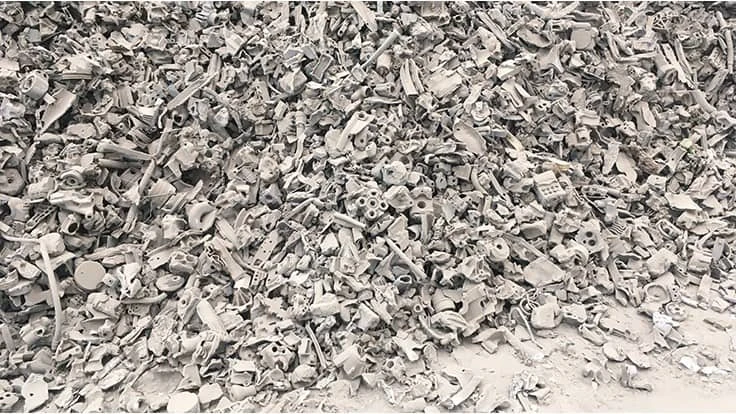
Photo by Brian Taylor.
After considerable anxiety among traders of metals, old corrugated containers (OCC) and other scrap materials, a draft European Commission (EC) document does not recommend a ban on scrap moving from Europe to countries with developing economies.
Changes and additional paperwork may yet be in the offing, however. An executive summary of the new working document indicates traded materials (still designated as “waste” by the EC) “can only be exported to non-OECD countries that demonstrate their ability to treat” the materials. The EC also asks regulators to “ensure that exporting companies and countries verify that facilities properly treat this waste [sic].”
Non-OECD countries are those outside of the 38-nation Organization of Economic Cooperation and Development. That group consists of countries with the highest per capita gross national product (GNP) and income.
The 120-page document with the complete proposed regulation contains in just its second paragraph the contrary notions that the traded scrap commodities generate “risks for human health and the environment” while also carrying considerable value.
After mentioning the risks, the regulation’s authors write that the shipped materials “often have a positive economic value, notably as secondary raw materials that can replace and reduce dependence on primary materials and thereby contribute to a more circular economy.”
The EC says its consultations with stakeholders has led it to favor the policy with the opt in system for non-OECD countries as a way to “support the EU’s objective to stop exporting its waste challenges to third countries, and contribute to better addressing illegal shipments of waste, without risking excessive costs or disruption.”
However, the document calls for “harmonized” contamination thresholds of the type introduced by the People’s Republic of China and (soon) Malaysia. Specifications used in Europe typically leave room for flexibility. Specifications authored by the Washington-based Institute of Scrap Recycling Industries frequently contain phrasing such as “agreed upon by buyer and seller.”
In terms of recordkeeping tasks confronting scrap processors and traders under the new regulation, the document says the EC expects to:
- examine and establish harmonized contamination threshold levels to classify certain materials as green-listed or not;
- examine and establish criteria to distinguish between used goods and “waste” for certain objects or substances;
- establish and maintain a new framework for the export of green-listed scrap from the EU to a non-OECD country, especially the establishment and updating of a list of countries to which the export of such scrap is authorized;
- establish a harmonized calculation method for financial guarantees or equivalent insurance;
- monitor the export of scrap to OECD countries and mitigate environmental problems that might be caused by such exports; and
- organize and facilitate the work of a dedicated group at EU level with the task to facilitate and improve cooperation on enforcement of the WSR (“waste" enforcement group).
After reviewing the document, the Washington-based Institute of Scrap Recycling Industries (ISRI) said it was “relieved that the proposed regulation will not be imposing trade restrictions on recycled commodities between the United States and Europe.”
However, ISRI expressed concern about looming documentation demands for traders, unclear guidelines about what is a commodity versus a “waste,” and the overall scrutiny secondary commodities receive compared with mined materials.
“The regulation fails to provide adequate, clear and concise definitions and distinctions between valueless discarded waste and specification-grade recyclable commodities that are in high demand by global manufacturers with global supply chains,” states ISRI. “Imposing burdensome procedures on exporters to judge another country’s policies and recycling infrastructure or worse, banning trade of recyclable commodities – especially when no such comparable regulations are being imposed on carbon-intensive, primary raw materials extracted from the earth – will lead only to greater stress on the environment from mining and manufacturers being challenged to meet sustainability goals,” states the association.
The 120-page regulatory document can be downloaded from this web page.
Latest from Recycling Today
- European project yields recycled-content ABS
- ICM to host co-located events in Shanghai
- Astera runs into NIMBY concerns in Colorado
- ReMA opposes European efforts seeking export restrictions for recyclables
- Fresh Perspective: Raj Bagaria
- Saica announces plans for second US site
- Update: Novelis produces first aluminum coil made fully from recycled end-of-life automotive scrap
- Aimplas doubles online course offerings







